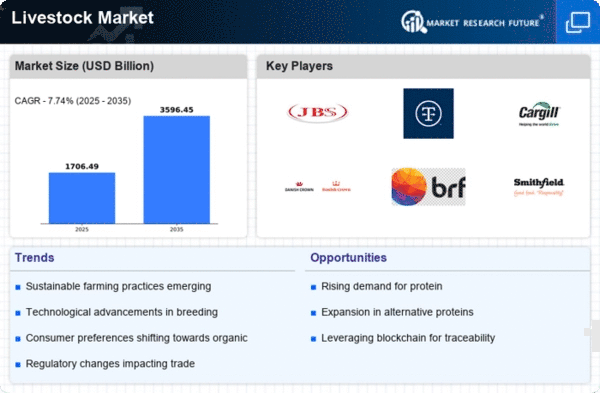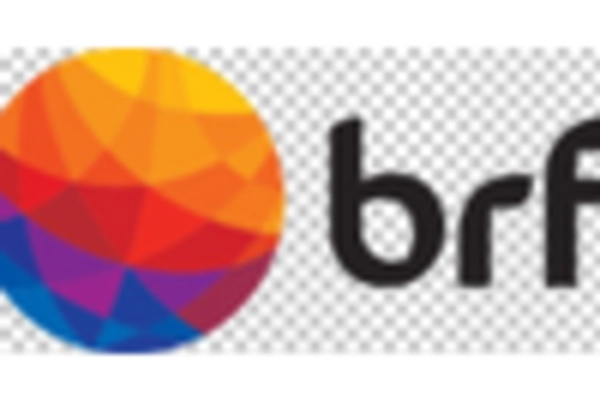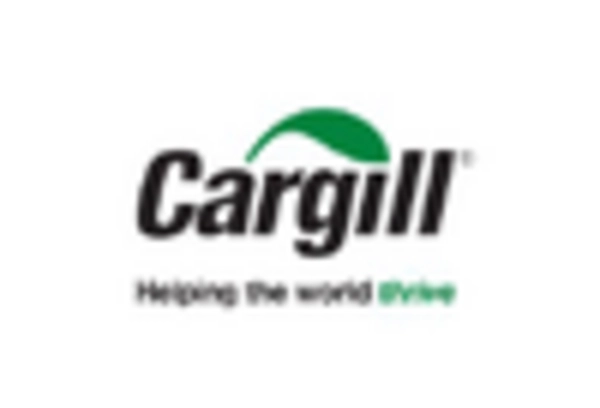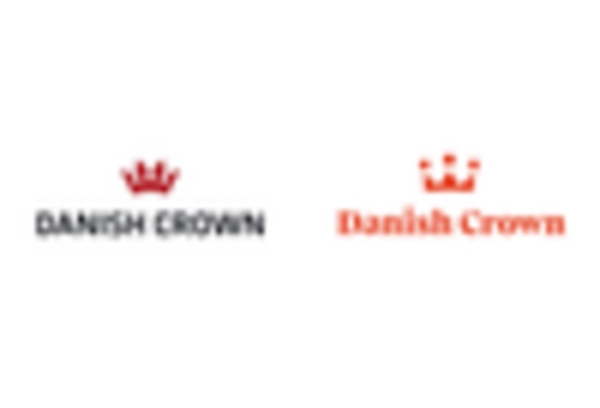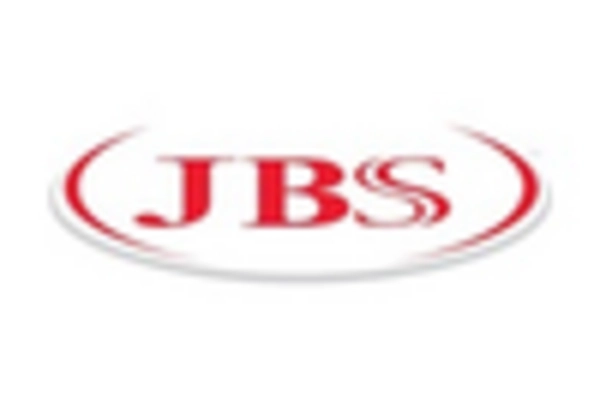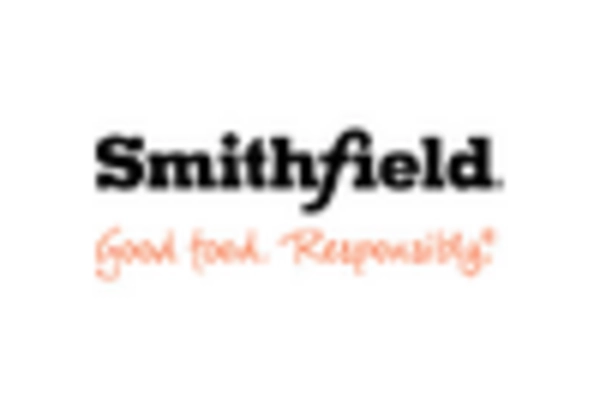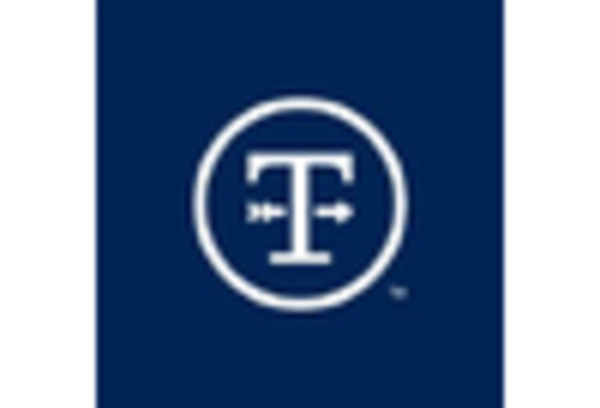Global Trade Dynamics
Global trade dynamics significantly impact the Global Livestock Market Overview Industry, influencing supply chains and market access for livestock products. Trade agreements and tariffs can facilitate or hinder the movement of livestock and livestock products across borders. For instance, countries that engage in free trade agreements may experience increased exports of meat and dairy products, thereby boosting their livestock sectors. As the market evolves, it is expected to grow from 235.94 USD Billion in 2024 to 541.32 USD Billion by 2035, indicating that trade policies will continue to play a vital role in shaping the livestock landscape.
Rising Global Population
The increasing global population is a primary driver of the Global Livestock Market Overview Industry. As of 2024, the world population is projected to reach approximately 8 billion, leading to heightened demand for protein-rich food sources. This trend is expected to continue, with projections indicating that by 2035, the population may surpass 9 billion. Consequently, the livestock sector must adapt to meet this growing demand, which is reflected in the market's anticipated growth from 235.94 USD Billion in 2024 to 541.32 USD Billion by 2035, suggesting a robust expansion in livestock production and consumption.
Market Growth Projections
The Global Livestock Market Overview Industry is poised for substantial growth, with projections indicating a market size of 235.94 USD Billion in 2024 and an anticipated increase to 541.32 USD Billion by 2035. This growth trajectory suggests a compound annual growth rate of 7.84% from 2025 to 2035, reflecting the industry's resilience and adaptability. Factors such as rising population, changing dietary preferences, and technological advancements are likely to contribute to this expansion. The market's dynamics will be closely monitored as stakeholders seek to capitalize on emerging opportunities and navigate potential challenges.
Shifting Dietary Preferences
Changing dietary preferences, particularly in developing nations, are significantly influencing the Global Livestock Market Overview Industry. As incomes rise, consumers increasingly favor meat and dairy products, which are perceived as symbols of wealth and status. This shift is particularly evident in regions such as Asia and Africa, where meat consumption is on the rise. The market is expected to grow substantially, with a projected compound annual growth rate of 7.84% from 2025 to 2035. This trend indicates a potential transformation in livestock production practices to accommodate the evolving tastes and preferences of consumers.
Sustainability and Environmental Concerns
Sustainability is becoming a pivotal concern within the Global Livestock Market Overview Industry. As awareness of environmental issues grows, consumers and producers alike are increasingly prioritizing sustainable practices in livestock production. This includes reducing greenhouse gas emissions, improving animal welfare, and adopting sustainable feed sources. Governments are also implementing regulations to promote environmentally friendly practices, which may drive innovation in the sector. The market's anticipated growth, from 235.94 USD Billion in 2024 to 541.32 USD Billion by 2035, suggests that sustainability initiatives could play a crucial role in shaping the future of livestock production.
Technological Advancements in Livestock Farming
Technological innovations are reshaping the Global Livestock Market Overview Industry, enhancing productivity and efficiency in livestock farming. Advances in genetics, nutrition, and animal health are enabling farmers to optimize production while minimizing environmental impact. For instance, precision farming techniques and data analytics are being employed to monitor livestock health and improve feed efficiency. These advancements are likely to contribute to the market's growth trajectory, with an expected increase from 235.94 USD Billion in 2024 to 541.32 USD Billion by 2035, reflecting the industry's adaptation to modern agricultural practices.


